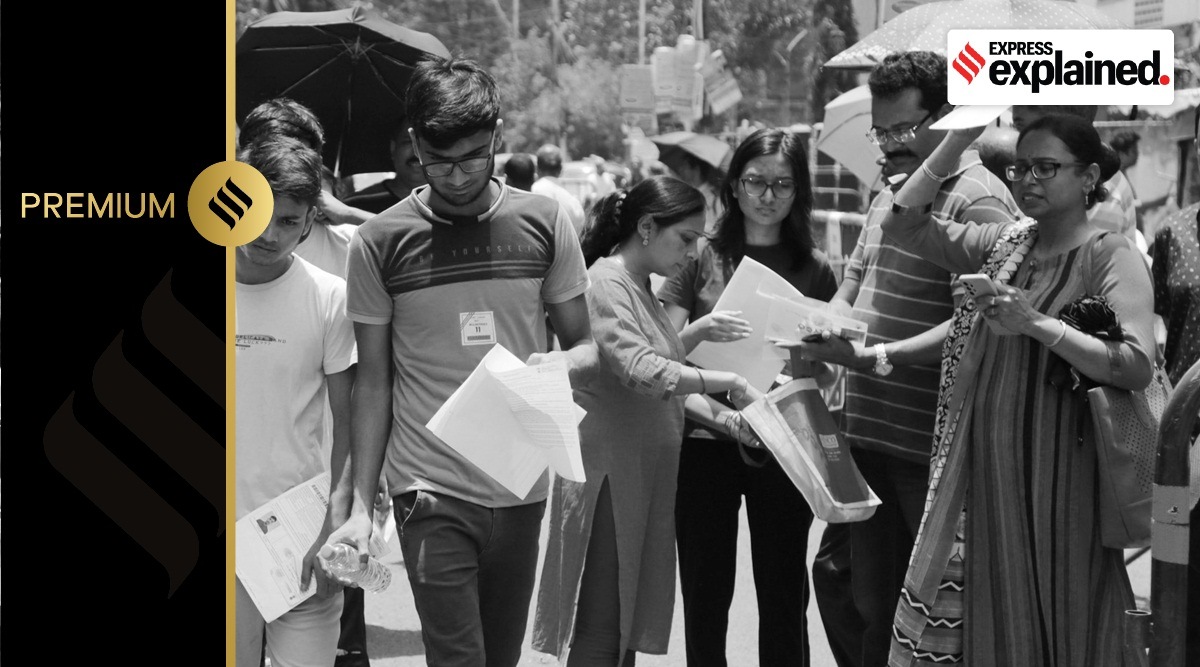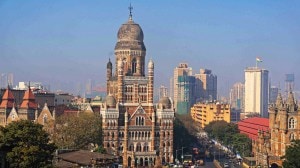This is the first time that the eligibility cut-off has been completely done away with since the examination replaced all other medical entrance tests in 2017. Over 13,000 PG seats in medical colleges across the country remain vacant at present even after two rounds of counselling.
“The qualifying percentile for … NEET PG Counselling 2023 has been reduced to ‘ZERO’ across all categories by MoHFW. In this regard, it is mentioned that Fresh Registration & Choice Filling for Round-3 of PG Counselling will be opened again for candidates who have become eligible after reduction of percentile,” the notice from MCC says
Does this mean anyone who has appeared for NEET PG will become eligible?
Yes. Removing the eligibility cut-off, in effect, makes anyone who has appeared for the test including those who have scored negative marks eligible for the post-graduation courses. However, those in the know of the matter say it is highly unlikely that candidates scoring zero will get a seat because the allotment will still happen based on the rank they have been assigned.
“Just because people with zero marks or negative marks are eligible doesn’t mean they will get the seats. Around 2.25 lakh people appeared for the NEET PG test but there are about 68,000 PG seats in the country. Only as many students can and will get admission,” says an official from the Union Health Ministry.
How is the merit list prepared?
A rank is assigned to all students automatically at the all-India level based on the marks they have scored on the test. This list is used for the allotment of 50% of the PG seats that are available under the all-India quota. The list released is expanded when the eligibility criteria changes; the cut-off is usually reduced by five or ten percentile towards the end of the counselling process if seats remain vacant.
“Why waste the resources? Especially, when all the people who sit for the test have already passed their MBBS examination and are already doctors,” the health ministry official says. They add that the Centre spends Rs 1.25 crore, with state contribution adding up to Rs 2 crore, for creating each PG seat in government colleges.
Story continues below this ad
A similar merit list is also prepared by each state for the rest of the 50% PG seats for which allotment is done by states. If two people score zero or same marks, the National Board of Examination that assigns these ranks at all India level has four tie-breaker criteria: higher rank goes to candidates with more correct responses, candidates with fewer wrong responses, candidates who are older, or candidates with higher aggregate marks in MBBS exams.
Is this the first time this has happened?
While the eligibility cut-off has never been reduced to zero since the inception of NEET, senior doctors say that this isn’t unprecedented.
“Before NEET started, the inter-state eligibility for PG courses was determined by the MBBS final scores. Essentially, anyone who passed MBBS before NEET was eligible for PG courses; we have gone back to the same with this decision. The standards of examinations were different across states and NEET was brought in to establish a standard way of determining inter-state and a national-level merit list,” according to a professor. They add that even those scoring zero are anyway eligible to practice as doctors having passed their MBBS examination.
Why has this been done?
Sources say the main reason behind the decision is to fill PG seats. Usually, the MCC conducts three rounds of counselling and a stray vacancy round of counselling to fill the seats. However, despite these efforts, there have been a number of PG seats that have remained vacant over the years.
Story continues below this ad
There were 3,744 seats vacant after all rounds of counselling in 2021-22 and 1,425 seats in 2020-21. This year, at least 13,245 seats have remained vacant after the first two rounds of counselling. The results for the third round will be announced by the end of the month based on the new eligibility criteria.
(Table 1: Source: Parliament, PIB statement, and sources from health ministry)
The ministry official says the vacant seats are largely in non-clinical specialities — those not involved with treating patients directly such as anatomy, biochemistry, microbiology, and pharmacology. “These seats remain vacant because these are not the preferred subjects of students. However, without people studying the subjects further, medical colleges find it difficult to get faculty for the subjects without which a college cannot start an MBBS course,” adds the official.
A look at the list of available seats released before the third round of counselling shows that that is not the case. There are 181 microbiology seats, 144 pharmacology seats, 81 biochemistry seats, and 33 anatomy seats vacant on the list. More common “clinical” subjects have more vacant seats such as general medicine (1,743), general surgery (723), Obstetrics and Gynaecology (1,459), and Anaesthesia (1,604).
Story continues below this ad
(Table 2: Source: Seat Matrix for virtual counselling of Round 3 released by MCC)
How has the increase in PG seats impacted vacancies?
The professor quoted above says a sudden increase in the number of PG seats is also likely to be one of the reasons many seats remain vacant.
“The high vacancy this time around is also because the government has increased the number of PG seats by a lot. While it may be good for the short term, in the long run, this will lead to a demand-supply mismatch. The situation will become similar to what is happening with engineers at the moment.”
For the 2020-21 session, there were 55,495 PG seats and 1,425 seats remained vacant after the mop-up and stray rounds of counselling. In 2021-22 there were 60,202 seats and 3,744 remained vacant, according to data shared by the union health minister in the parliament. The number of PG seats increased to 64,059 for the 2022-23 session and further to nearly 68,000 seats for the current session.
Story continues below this ad
What will be the impact on seats at private medical colleges?
The increased eligibility is likely to result in the moneyed getting through in private colleges even if they score less than the others. Another professor from a government college says: “While the annual fees for PG in government colleges could be as low as Rs 5,000 to 10,000, the fees at private colleges can be as high as a crore. What this means is that meritorious students who cannot pay the high fees would be left behind while those with fewer marks can get into private colleges if they have money. This is like a reverse economic quota.” In fact, 2,298 of the seats that continue to remain vacant are paid or management quota seats.
Dr Rohan Krishnan, assistant professor at ESI Post Graduate Institute of Medical Sciences and Research, says it will also increase trading of seats in private medical colleges.
“There will be trading of seats in private colleges. This has happened before and will get worse with the zero percentile eligibility. There will be students who do not get the seat or subject of their choice and decide to take a drop for the year. Agents from private colleges ask them to hold on to the seat and let go of it towards the end of the counselling process to charge higher fees. One instance where the seats were allotted for crores of rupees at a Chennai college was prominently highlighted in 2013,” he adds.








































